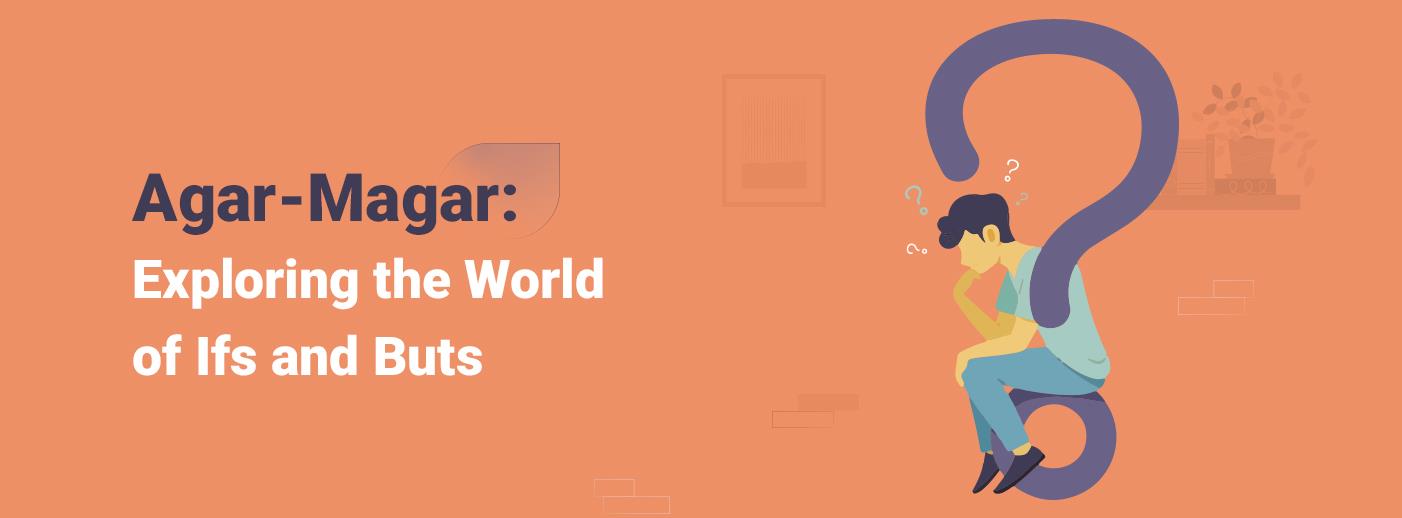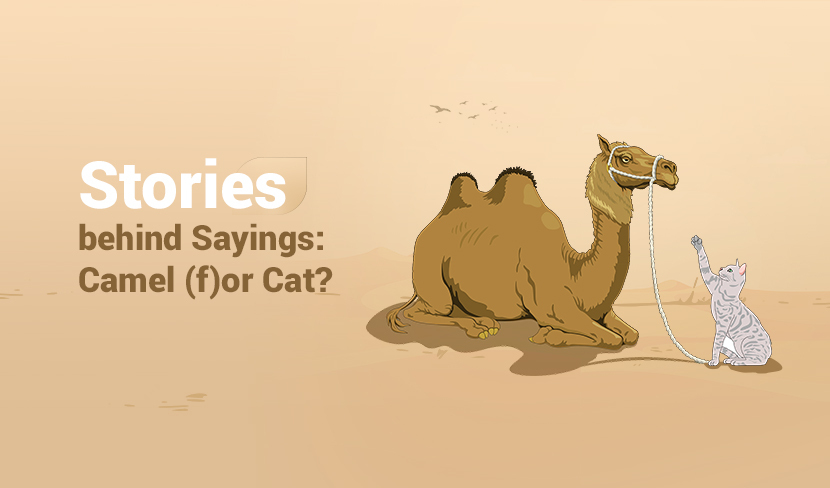Top searched
Saved words
khisyaanii billii khambaa noche
an embarrassed or ashamed person tends to vent his/her feeling by quarrelling
be-niyaaz
without want, free from want, wanting nothing, not in need, able to dispense, independent, carefree
Agar-Magar: Exploring the World of Ifs and Buts

un ke vaadon kaa kuchh yaqin nahin guftugu men agar magar bhii hai SHAH AKBAR DANAPURI Oh, if at all I understood this couplet! But what at all if I could! Ifs and buts create the gray areas in our speech that shine brighter than all other colors produced by all of language. Grammatically a conjunction, or Harf-e-Atf as it’s called in Urdu, this one set of words is just an inevitable part of our vocab. Just imagine your day without uttering Agar-Magar; you just can’t! Now on what makes this set of words special and how other words stem forth from them, let’s get to learning a bit more about these words, starting with AGar. Agar is actually an extension of the word ‘Gar’, which originally means ‘either’ and is often interchangeably used with Agar. But how did ‘either’ morph into ‘if’? Answer, both have essentially the same meaning. Take this in: ‘either’ literally means ‘in this (one) case’, right? And in the same manner, ‘if’ also conditionally means ‘in the case of’, and by that connection, their meanings both overlap and overpass. We’ve made it from ‘Gar’ to ‘Agar’, now let’s quickly touch upon a few other variants. Heard of conjunctions like ‘Gar-Che’ (although), ‘Agar-Che’ (however), and ‘Gar-Chand’ (to whatever extent)? They are all corollaries of the initial ‘Gar’ that we unpacked above. Now to the most interesting word of this lot, ‘Magar’. The little ‘Ma’ that you see here is actually a privative (negative particle) prefixed to ‘Gar’, turning ‘if’ into ‘if not’ - which gives us ‘but’. But here comes the twist, ‘Magar’ also means perhaps, or ‘Shayad’ as we say in Urdu. Take this couplet for instance: shab magar rah gayi tho.Di jo nazar aataa hai har sitaare men charaaG-e-sahari ka aalam MUSHAFI GHULAM HAMDANI On this little ‘Ma’, I promise to flesh out another dedicated blog very soon because there is a great deal more to it, but for now let’s continue to our destination. But before we move on to the one last variant, there’s something important to note. In Persian, ‘Agar’ is commonly contracted to just ‘Ar’, i.e., with the ‘G’ sound dropped. Here’s it in this fine couplet by Hafiz: hazār dushman’am ar mī-kunand qasd-e-halāk gar’am tū dostī az dushmanāñ na-dāram baak If a thousand foes have an intent to kill me If you are my friend, I am not afraid of foes In the above couplet, ‘Ar’ is actually better translated as ‘Bale’ or ‘Chaahe’ rather than Agar itself. In Urdu prose, the couplet translates as follows: “Bale hazaron dushman mujhe khatm karna chahte hain, agar tu mera dost hai to mujhe dushmanon se dar nahin” On the back of this ‘Ar’, we get our last adverb/conjunction ‘Varna’, a word which also profusely appears as ‘Vagarna’ in classical poetry. A constant in Urdu parlance, this is how the word breaks down: Va + Gar + Na, literally converting into, and if not, and translating as or else, or otherwise. This makes for a great time to recall Ghalib’s classic couplet: hua hai shah ka musahib phire hai itrata vagarna shahr men 'Ghalib' ki aabru kya hai MIRZA GHALIB With that we have spanned the full stretch of ifs and buts in Urdu. I hope there is no Agar-Magar in your mind anymore. Agar-che there are any doubts, make it a point to drop them in the comment section below, Varna!!!
Delete 44 saved words?
Do you really want to delete these records? This process cannot be undone





